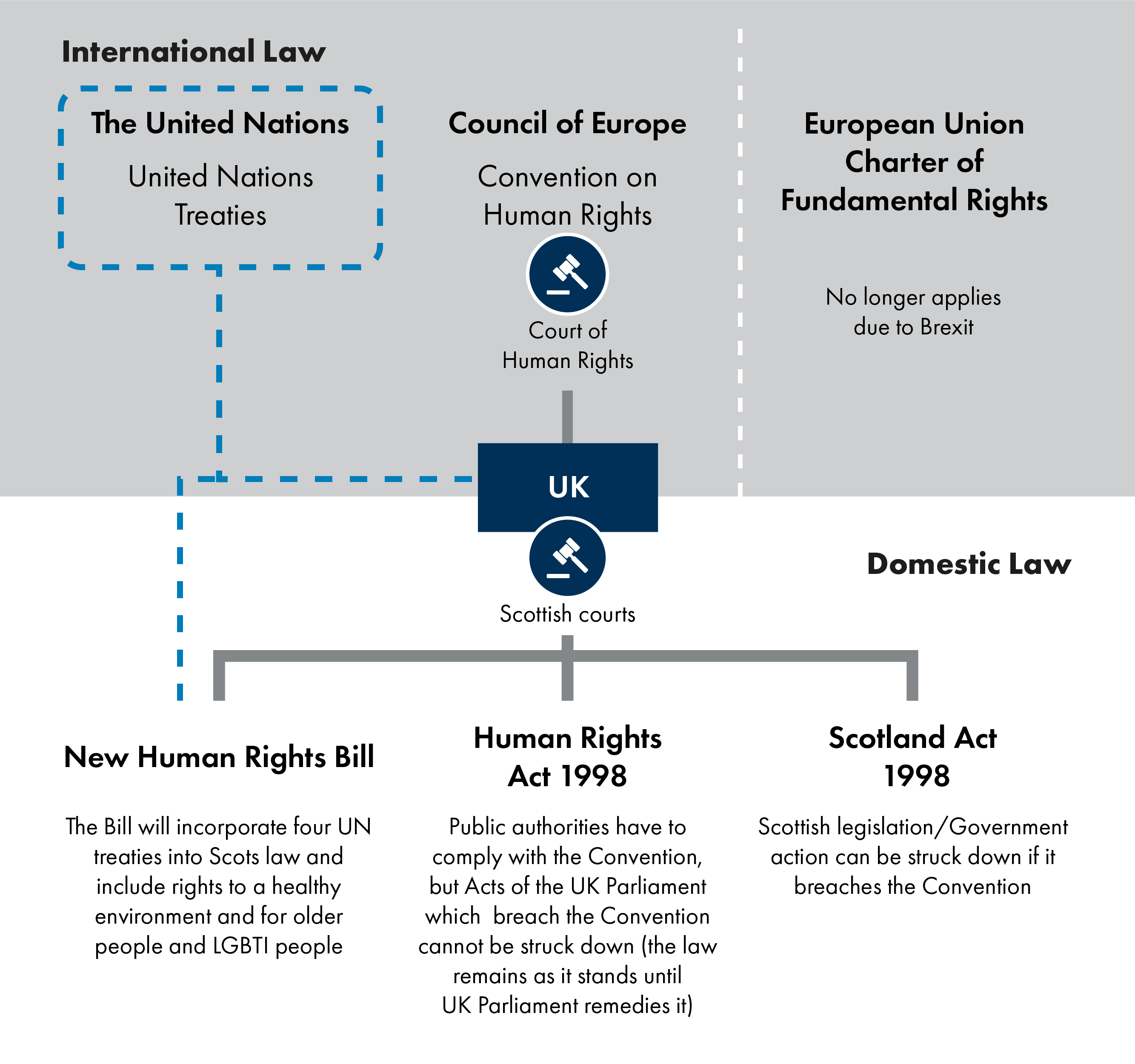Reid, R., & Murdoch, J. (2017). Human Rights Law in Scotland (p.107, para 2.02). London: Bloomsbury.
United Nations. (2021). What is the purpose of the Human Rights Treaty Bodies general comments?. Retrieved from
https://ask.un.org/faq/135547 [accessed 9 September 2021]
United Nations Office of the High Commissioner for Human Rights. (1990, December 14). CESCR General Comment No. 3: The Nature of States Parties’ Obligations (Art. 2, Para. 1, of the Covenant) . Retrieved from
https://www.refworld.org/pdfid/4538838e10.pdf [accessed 9 September 2021]
United Nations Office of the High Commissioner for Human Rights. (1990, December 14). CESCR General Comment No. 3: The Nature of States Parties’ Obligations (Art. 2, Para. 1, of the Covenant) . Retrieved from
https://www.refworld.org/pdfid/4538838e10.pdf [accessed 9 September 2021]
UK Supreme Court. (2018, June 27). R (on the application of Steinfeld and Keidan) (Appellants) v Secretary of State for International Development (in substitution for the Home Secretary and the Education Secretary) (Respondent)[2018] UKSC 32. Retrieved from
https://www.supremecourt.uk/cases/uksc-2017-0060.html [accessed 8 October 2021]
Supreme Court. (2018, December 13). THE UK WITHDRAWAL FROM THE EUROPEAN UNION (LEGAL CONTINUITY) (SCOTLAND) BILL - A Reference by the Attorney General and the Advocate General for Scotland (Scotland) [2018] UKSC 64. Retrieved from
https://www.supremecourt.uk/cases/uksc-2018-0080.html [accessed 8 October 2021]
UK Supreme Court. (2021, October 6). Press summary - REFERENCE by the Attorney General and the Advocate General for Scotland – United Nations Convention on the Rights of the Child (Incorporation) (Scotland) Bill REFERENCE by the Attorney General and the Advocate General for Scotland – European Charter of Local Self-Government (Incorporation) (Scotland) Bill [2021] UKSC 42. Retrieved from
https://www.supremecourt.uk/press-summary/uksc-2021-0079.html [accessed 15 December 2021]
Dasgupta, P. (2021). The Economics of Biodiversity: The Dasgupta Review. London: HM Treasury.
United Nations Economic and Social Council. (2021). Meeting of the Parties to the Convention on Access to Information, Public Participation in Decision-making and Access to Justice in Environmental Matters: Report of the Compliance Committee on compliance by the United Kingdom of Great Britain and Northern Ireland – Part I. Retrieved from
https://unece.org/sites/default/files/2021-09/ece.mp_.pp_.2021.59_ac.pdf
Woolf, H., Jowell, J., Donnelly, C., & Hare, I. (2020). De Smith's Principles of Judicial Review, Second Edition, paras 5-053 and 5-057. London: Sweet & Maxwell.
Supreme Court. (n.d.) REFERENCE by the Attorney General and the Advocate General for Scotland - United Nations Convention of the Rights of the Child (UNCRC) (Incorporation) (Scotland) Bill - Case ID: 2021/0079 - Case Summary. Retrieved from
https://www.supremecourt.uk/cases/uksc-2021-0079.html [accessed June 2021]
The Supreme Court. (2021, October 6). Judgement: Reference by the Attorney General and the Advocate General for Scotland - United Nations Convention on the Rights of the Child (Incorporation) (Scotland) Bill REFERENCE by the Attorney General and the Advocate General for Scotland - European Charter of Local Self-Government (Incorporation) (Scotland) Bill. Retrieved from
https://www.supremecourt.uk/cases/docs/uksc-2021-0079-judgment.pdf


